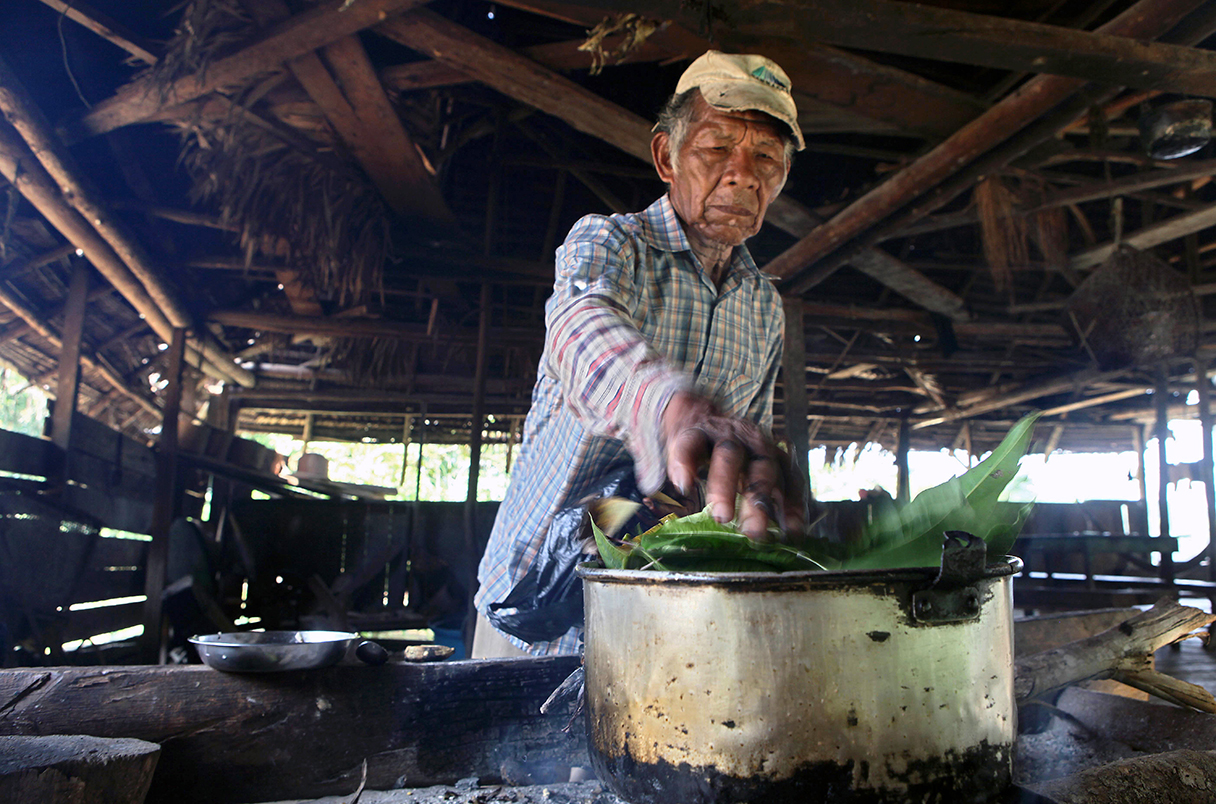Ancestral medicine is dying along with indigenous languages

“Every time an indigenous language dies, it’s as if a library is burning,” says biologist Rodrigo Camara-Liret, of the loss of ancestral medicine in the Amazon.
In May 2021, a study He revealed that the Amazon region is currently severely affected It produces more carbon dioxide than it can capture from the atmosphere. Largely, according to scientists at Skidmore College in New York, due to excessive illegal logging of the forest. Biodiversity loss is inherent to this process of ecosystem destruction, primarily It is due to excessive human activity.
As a result of the degradation and destruction of forests and the Amazon It emits more carbon dioxide than it can handle. Added to the loss of environmental wealth, according to a report recently published in SciencesThe ancient wisdom of the region’s indigenous peoples is also in danger – and with them, All the information he has on ancestral medicine.
As the Amazon disappears, so does his ancient knowledge
Studying the Amazon is not that easy: it stretches across nine countries Latin America, with its rivers, mountain ranges and great diversity of ecosystems. Due to the vastness of the forest, many advances in Western science have not been able to penetrate into the humid bowels of the forest to analyze its species. Many of them, according to a report issued by National GeographicAnd the It could disappear without us knowing about it.
The study was recently published in Sciences Focuses on the state of the Matapí community, who currently has a file Population less than 70 people. 70 settled on the banks of the Merite-Parana River, in the Colombian Amazon jungle. Due to urban development and excessive logging, not only are we running out of living space, but many Plants used in ancestral medicine are becoming increasingly rare.
“We are losing the core of our spiritual knowledge of medicinal plants,” says Uldarico Matapí, a local shaman who works in traditional herbal medicine. “Knowledge that cannot be translated into other languages.”
In the 1980s, the Matabi community – along with other Amazonian nomadic tribes – was It was confined to ethnic reservations. Rather than allowing them to inhabit the lands that have belonged to them for thousands of years, the authorities of the various countries crossing the Amazon decide to keep them in designated spaces – often, away from the supplies they need to treat their illness.
latin america problem
Matabi aren’t the only ones facing To lose ancestral knowledge. In contrast, extensive research was presented in the 2022 edition of Global Biodiversity Forum He denounces that it is a Latin American problem. With the destruction of the Amazon, The indigenous languages of the region are disappearing.
In contrast, the 80% of the world’s available biodiversity is found on indigenous lands. Moreover, much of it is exploited for the benefit of the countries that govern it.
And with them, the The ancestral medicine planted by his people For thousands of years:
“Every time an indigenous language dies, it’s like a library is burning, but we don’t see it because it’s silent,” says study co-author Rodrigo Camara-Liret, a biologist at the University of Zurich (UZH).
Currently, the Amazon jungle is home to at least 7,000 indigenous languages. According to the records of Kamara Lerett and his team published in parallel in Proceedings of the National Academy of Sciences (PNAS), 40% of these are at risk of disappearing. As much as a lot of the therapeutic terms these people use can’t be translated into the dominant languages, The knowledge of their ancient medicine will also disappear with them.
Read on:
Why is Elizabeth II responsible for the degradation of the UK’s seas
Recreational consumption of peyote and ayahuasca ends Wixarica’s ecosystem and tradition

“Award-winning zombie scholar. Music practitioner. Food expert. Troublemaker.”


/cloudfront-eu-central-1.images.arcpublishing.com/prisa/AHVYMMDSTZDTDBFNZ3LMFUOKNE.jpg)








